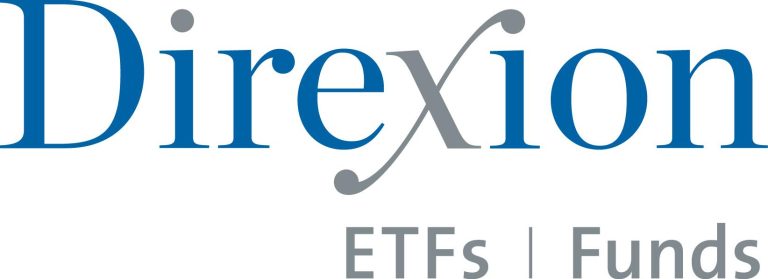
U.S. workers are becoming increasingly concerned about their financial health, according to a Bank of America Workplace Benefits Report. Of the 1,000 respondents polled by BofA, 47% full-time workers reported having a sense of economic well-being, down from 52% at the start of 2025 [1].
Trending Now
- Thanks to Jeff Bezos, you can now become a landlord for as little as $100 — and no, you don’t have to deal with tenants or fix freezers. Here’s how
- I’m 49 years old and have nothing saved for retirement — what should I do? Don’t panic. Here are 6 of the easiest ways you can catch up (and fast)
- Dave Ramsey warns nearly 50% of Americans are making 1 big Social Security mistake — here’s what it is and 3 simple steps to fix it ASAP
What are they most concerned about? Nearly half of respondents (45%) report having no emergency savings and 85% report carrying some type of personal debt, including credit card debt. Many are also concerned about retirement — 33% say they aren’t confident they’re on track for the retirement they imagined for themselves.
While the state of the economy is often discussed in terms of dollars and cents, consumer confidence matters. When consumers are nervous about their finances, they often spend less, which can have a ripple effect on the economy at large.
Are financial fears justified?
It’s easy to feel like the economy is spiraling when your social media feed is packed with posts about rising prices [2], but the broader picture is a little more nuanced.
The US annual inflation rate held steady at 2.7% in July 2025 [3]. That’s higher than the Federal Reserve’s 2% target but nowhere near the double-digit levels Americans experienced in the early 1980s [4]. Additionally, the Consumer Price Index — a measure of the average price change for goods and services — rose just 0.2% from the prior month [5].
Gas prices, another common barometer of consumer sentiment, averaged $3.20 per gallon nationwide in September, according to AAA [6]. That’s seven cents higher than last month but just slightly lower than the $3.21 average a year ago.
In other words, while prices are still rising, there is some indication the economy might not be as bad as many consumers think. Still, national data doesn’t always match personal experience. If your rent just went up $200 a month or you’re juggling a car loan and credit card payments, the numbers on a government chart won’t erase your stress.
Read more: Robert Kiyosaki warns of a ‘Greater Depression’ coming to the US — with millions of Americans going poor. But he says these 2 ‘easy-money’ assets will bring in ‘great wealth’. How to get in now
How to manage financial stress
Even if the economy isn’t as dire as the headlines suggest, Americans are carrying more debt. According to Market Watch, household debt reached an all-time high of $18.2 trillion this year, with 45% of Americans carrying credit card debt [7]. So, what can you do to manage financial stress? Here are a few steps you can take.
Get a clear picture of your finances
Start by writing down what you earn, what you owe and what you spend each month. Seeing everything in black and white helps you identify where your money is going and where you might be able to cut back. Lack of clarity won’t help you make smart financial decisions, so you want to know exactly where you stand financially at the moment.
Set a budget
A budget doesn’t have to be restrictive. Think of it as a plan to put every dollar to work and for how you want to use your money. Start with fixed expenses, such as rent, utilities and debt payments. Then, decide how much you’ll allocate for savings, food and nice-to-have items, like date nights or your favorite hobbies. If you struggle to stick to a budget, consider using the paper envelope method or a budget app to help you stay on track.
Build an emergency fund
Lacking an emergency fund can keep you stuck on the debt wheel. Even if you pay off thousands of dollars in debt, you could still be one flat tire or unexpected medical bill away from landing back in debt. The ideal cushion is three to six months’-worth of expenses, but don’t get discouraged if that feels out of reach. Even $500 to $1,000 can give you breathing room and keep life’s little surprises from becoming long-term financial setbacks. Some is better than none.
Set small, achievable goals
It’s easy to get overwhelmed if you’re trying to pay off thousands of dollars in credit card debt or build a six-month emergency fund. Break your goals down into smaller milestones, like paying off one credit card or saving $500. And when you reach those goals, celebrate! Small successes help build momentum.
Get support
Managing money (especially debt) can feel isolating, but you don’t have to do it alone. A financial advisor can help you build a realistic plan, while a mental health professional can help you manage the stress that comes with financial strain. Even talking with a trusted friend can help put things in perspective.
The numbers show that inflation is cooling and gas prices are relatively stable, at least for now. But that doesn’t mean that Americans aren’t struggling. By focusing on what you can control — like sticking to a budget and building savings — you can reduce your stress and make steady progress towards your financial goals.
What to read next
- Goldman Sachs says this asset class is behaving more like Manhattan real estate than oil — and here’s how ‘opportunistic’ buyers can get in before its price keeps skyrocketing
- The ultrarich monopoly on prime US real estate is over — use these 5 golden keys to unlock passive rental income now (with as little as $10)
- This tiny hot Costco item has skyrocketed 74% in price in under 2 years — but now the retail giant is restricting purchase. Here’s how to buy the coveted asset in bulk
- Want an extra $1,300,000 when you retire? Dave Ramsey says this 7-step plan ‘works every single time’ to kill debt, get rich in America — and that ‘anyone’ can do it
Stay in the know. Join 200,000+ readers and get the best of Moneywise sent straight to your inbox every week for free. Subscribe now.
Article sources
At Moneywise, we consider it our responsibility to produce accurate and trustworthy content people can rely on to inform their financial decisions. We rely on vetted sources such as government data, financial records and expert interviews and highlight credible third-party reporting when appropriate.
We are committed to transparency and accountability, correcting errors openly and adhering to the best practices of the journalism industry. For more details, see our editorial ethics and guidelines.
[1]. Bank of America. “2025 workplace benefits report: shining a light on employee wellness in uncertain times”
[2]. Good Morning America. “Dollar Tree raises prices amid rising costs”
[3]. Trading Economics. “United States Inflation Rate”
[4]. Federal Reserve History. “The great inflation”
[5]. U.S. Bureau of Labor Statistics. “Consumer Price Index”
[6]. AAA. “Fuel prices”
[7]. New York Fed. “Quarterly report on household debt and credit”
This article provides information only and should not be construed as advice. It is provided without warranty of any kind.


